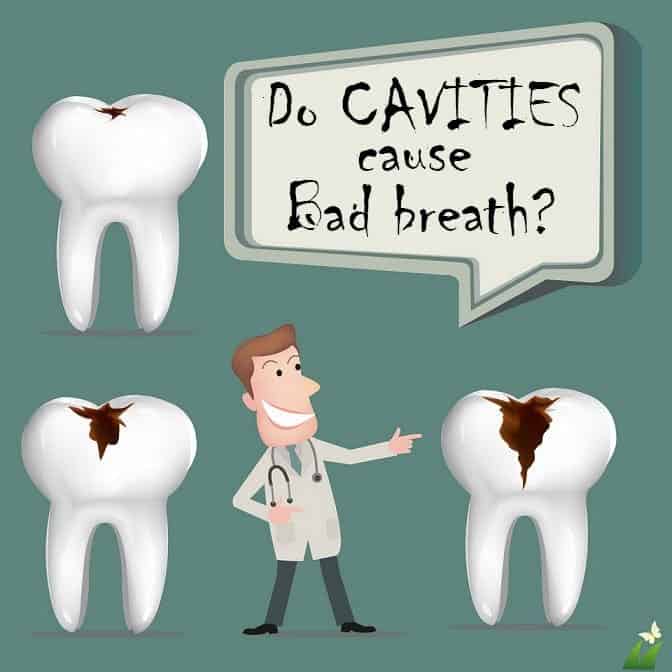Cavities Bad Breath

The dreaded duo of oral health issues: cavities and bad breath. While they may seem like unrelated problems, they are more connected than you might think. In this comprehensive guide, we will delve into the world of cavities and bad breath, exploring the causes, consequences, and most importantly, the solutions to these common oral health concerns.
The Cavity Conundrum
Cavities, also known as tooth decay, occur when bacteria in the mouth break down the teeth’s enamel, creating small holes. This process is facilitated by the presence of acid-producing bacteria, which feast on the sugary and starchy foods we consume. As the bacteria multiply, they form a sticky biofilm called plaque, which clings to the teeth and gums, causing inflammation and damage.
But cavities are not just a matter of aesthetics; they can have serious consequences for our overall health. When left untreated, cavities can lead to:
- Tooth loss: As the decay progresses, it can reach the pulp of the tooth, causing pain and potentially leading to tooth loss.
- Infection: Bacteria can spread from the tooth to the surrounding tissues, causing abscesses and infections.
- Systemic health issues: Research has linked gum disease and tooth decay to an increased risk of heart disease, diabetes, and other systemic health problems.
The Breath of Fresh Air (or Not)
Bad breath, or halitosis, is a common complaint that can be both embarrassing and debilitating. But what causes this unpleasant odor? The answer lies in the mouth, where bacteria feed on food particles, dead cells, and other debris. As they break down these substances, they release volatile sulfur compounds (VSCs), which give off a characteristic rotten egg smell.
But bad breath is not just a matter of poor oral hygiene; it can be a sign of underlying health issues. Certain medical conditions, such as gastroesophageal reflux disease (GERD), diabetes, and respiratory infections, can cause bad breath. Additionally, dry mouth, tobacco use, and certain medications can also contribute to this problem.
The Connection Between Cavities and Bad Breath
So, how do cavities and bad breath relate to each other? The answer lies in the bacteria that cause both problems. When bacteria accumulate on the teeth and gums, they can lead to the formation of cavities. At the same time, these bacteria can also produce VSCs, causing bad breath.
In fact, research has shown that people with cavities are more likely to experience bad breath. This is because the bacteria that cause cavities can also produce odor-causing compounds. Moreover, the presence of cavities can create an environment that fosters the growth of bacteria, leading to a vicious cycle of decay and odor.
Breaking the Cycle
Fortunately, there are steps you can take to prevent cavities and bad breath. Here are some expert tips to help you maintain good oral health:
- Brush and floss regularly: Remove plaque and bacteria from your teeth and gums by brushing at least twice a day and flossing once a day.
- Use a tongue scraper: Remove bacteria and debris from the surface of your tongue, which can contribute to bad breath.
- Visit your dentist regularly: Regular check-ups can help catch cavities and other oral health issues early, preventing more serious problems from developing.
- Eat a balanced diet: Limit sugary and starchy foods, which can contribute to cavities and bad breath.
- Stay hydrated: Drink plenty of water to keep your mouth moist and wash away bacteria and food particles.
Advanced Solutions
In addition to these basic tips, there are some advanced solutions that can help prevent cavities and bad breath. These include:
- Fluoride varnishes: Applied to the teeth to prevent decay and strengthen tooth enamel.
- Antibacterial mouthwashes: Containing ingredients like chlorhexidine, which can help reduce bacteria and prevent bad breath.
- Desensitizing toothpastes: Containing ingredients like potassium nitrate, which can help reduce sensitivity and prevent cavities.
Conclusion
Cavities and bad breath are two common oral health issues that are more connected than you might think. By understanding the causes and consequences of these problems, you can take steps to prevent them and maintain good oral health. Remember to brush and floss regularly, visit your dentist often, and eat a balanced diet to keep your teeth and mouth healthy.
What is the best way to prevent cavities?
+The best way to prevent cavities is to practice good oral hygiene, including brushing and flossing regularly, visiting your dentist often, and eating a balanced diet. Additionally, using a fluoride toothpaste and mouthwash can help prevent decay and strengthen tooth enamel.
Can bad breath be a sign of an underlying health issue?
+Yes, bad breath can be a sign of an underlying health issue. Certain medical conditions, such as GERD, diabetes, and respiratory infections, can cause bad breath. Additionally, dry mouth, tobacco use, and certain medications can also contribute to this problem. If you experience persistent bad breath, it's best to consult with your dentist or healthcare provider to rule out any underlying health issues.
How often should I visit my dentist?
+The American Dental Association recommends visiting your dentist at least twice a year for routine check-ups and cleanings. However, if you have a history of oral health issues or are at high risk for cavities and bad breath, your dentist may recommend more frequent visits.
By following these tips and staying informed about the latest advancements in oral health, you can keep your teeth and mouth healthy, preventing cavities and bad breath from ruining your day. Remember, good oral health is just a brush away!

